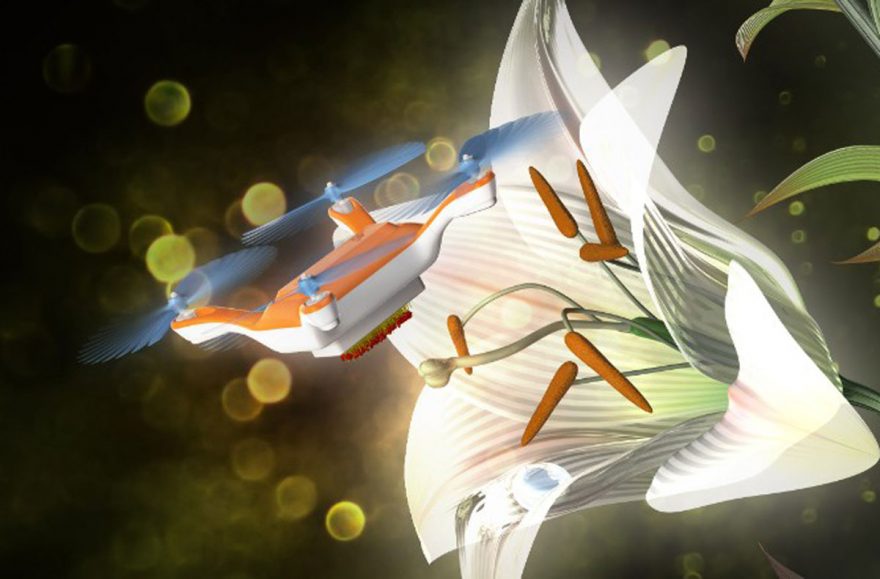
At the moment, drones are widely becoming used recreationally and professionally in order to capture stunning action clips or photograph landscapes from above. With the development of technology in this sector, thoughts are leaning towards putting them to good use.
A team of Japanese researchers has just managed to pollinate a flower using a tiny drone. With the shocking rate of the death of bees, this is a remarkable step to safeguarding what should be a natural process.
Horsehairs on the drone were coated with a gel which picks up the pollen and can then be transported to the flower for pollination. It is still very early days and the process has only been done under strict tests, so we’ve yet to see if it will be a viable option.
Eijiro Miyako of the National Institute of Advanced Industrial Science and Technology in Japan said: “This is the world’s first demonstration of pollination by an artificial robotic pollinator”.
In order for plants to reproduce, pollen must travel from one to another. This is done through a pollinator, such as insects and bees, as well as birds. It is estimated that 75% of the world’s crops rely on this process to survive, which is why it is crucially important we make sure that it continues.
You must be wondering what kind of drone they used? You’d be surprised to learn that it wasn’t a specially designed one, simply a commercially available (small) drone did the job. Stick horsehairs onto the bottom of it and apply a gel to catch the pollen, and you’ve got a man-made pollinator.
It’s all in the gel
The study wasn’t just focused on the flying of the drone, but more specifically on the gel used. The researchers were keen to see how the gel reacted throughout the process. For those who understand the more in-depth side to this, you can read a more thorough paper on it here.
Miyako’s team stated that “the findings described here should lead to the development of robotic pollinators and help counter the problems caused by the declining honeybee populations”.
It’s a promising outlook on a sad situation, although we must do our absolute best to control the decline of bees.
 Your Privacy Choices
Your Privacy Choices
 The
The